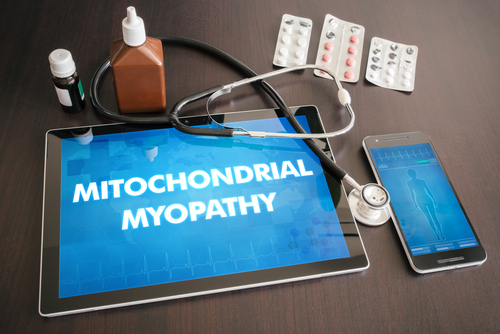Top-line Results Expected This Year for Phase 3 Study Testing Elamipretide Injections for Mitochondrial Myopathy

Stealth BioTherapeutics has completed patient enrollment for its Phase 3 trial ongoing in the United States to evaluate efficacy and safety of daily under-the-skin injections of elamipretide (MT-131), an investigational treatment for primary mitochondrial myopathy (PMM).
Top-line results of the study are expected by the end of the year, according to a press release.
“The debilitating fatigue and muscle weakness due to primary mitochondrial myopathy often has a negative impact on the quality of life of affected patients,” said Michio Hirano, MD, professor of neurology at Columbia University Medical Center in New York, who recruited most of the patients in the trial. “I am encouraged by the data demonstrated with elamipretide in prior trials and was pleased to be able to offer our patients the opportunity to participate in this trial.”
Positive results from two earlier MMPOWER trials (NCT02367014 and NCT02805790) showed that elamipretide injections enabled PMM patients to walk longer distances, with no serious adverse events.
This encouraged Stealth to proceed to a larger confirmatory study of safety and efficacy, MMPOWER-3 (NCT03323749), which has just finished enrollment across several sites in the U.S. According to the company, enrollment exceeded expectations, with 218 patients included out of a targeted 202.
The study will evaluate whether daily under-the-skin (subcutaneous) injections of elamipretide are safe and effective to treat people with primary mitochondrial myopathy, a debilitating muscle condition, affecting about 40,000 individuals in the U.S. and for which no therapies are approved.
In part one of the study, participants will be randomly, and blindly, assigned to receive either 40 mg daily injections of elamipretide or a placebo for six months.
In the second part, all participants will have the option to continue into an open-label extension study and receive elamipretide for up to three years.
The primary efficacy measure will be change in distance walked (meters) as measured by the six-minute walk test (6MWT), and change in the total fatigue score on the Primary Mitochondrial Myopathy Symptom Assessment (PMMSA), a patient evaluation of symptoms.
Secondary objectives include safety and tolerability, as well as patient- and clinician-reported outcomes.
Mitochondrial diseases, such as primary mitochondrial myopathy, are caused by mutations that disrupt the functioning of mitochondria, the cell’s “powerhouses” that work as its main energy suppliers.
Elamipretide is designed to penetrate the cell and enter mitochondria to help protect cardiolipin, a fat involved in the production of energy. The compound is thought to promote cell health by restoring energy production and to reduce cells’ oxidative stress.
The FDA granted Fast Track designation in 2015 and Orphan Drug designation in 2017 to elamipretide for the treatment of PMM.
Stealth is also studying the product for other primary mitochondrial diseases, including Barth syndrome and Leber’s hereditary optic neuropathy.
“We are grateful to the scientific, advocacy and patient communities, as well as the FDA, for partnering with us in our efforts to reach this important milestone, which we hope will pave the way toward providing potentially transformative therapy for affected individuals,” said Reenie McCarthy, Stealth chief executive officer. “We are particularly encouraged by the strong patient interest, which enabled us to exceed our enrollment goal.”






